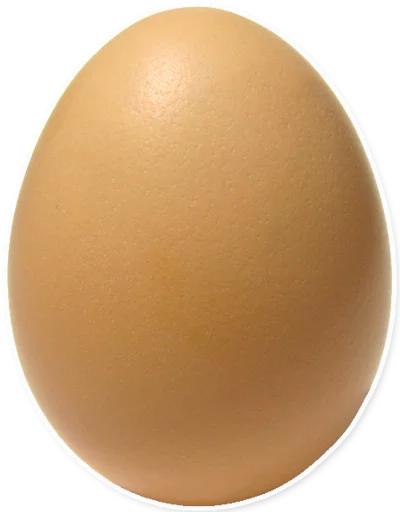File is https://github.com/ponyorm/pony/blob/orm/pony/utils/utils.py#L55
Or this one. If something changes, the link will point to the wrong line.
 Lucky
Lucky
File is https://github.com/ponyorm/pony/blob/orm/pony/utils/utils.py#L55

 Lucky
Lucky
@bonbot had more features, so user tried them out.
But this bot only acts on links of files on github, and that's all.
I don't really think it spams, as it makes github links future-proof, adding just a single line.
If you try to access a link later it's always work to find the right commit, at the right day.
 Yurii
Yurii
Hi, @akozlovsky .
I have one question.
Сan you explain briefly how list comprehensions is being translated into sql?
 Alexander
Alexander
Hi, I described some steps here:
https://stackoverflow.com/questions/16115713/how-pony-orm-does-its-tricks/16118756#16118756
 Matthew
Matthew
Hi,
I have a bunch of queries like this in my postgres slowlog:
2018-01-01 10:03:38 UTC LOG: duration: 1863.315 ms statement: INSERT INTO "x" ... VALUES ... RETURNING "id"
 Matthew
Matthew
Should I use db.insert https://docs.ponyorm.com/api_reference.html#Database.insert for this?
 Alexander
Alexander
Happy New Year to all!
Hi Matthew, I think the long insert time may be caused by waiting for some concurrent transaction to finish, for example if that another long-running transaction updated some index, and insert command needs to update that index too. I don't think RETURNING ID clause can slow down the query. Also, I doubt db.insert method may help here - its benefit is that the object is not created in Python before insert, so we can avoid Python overhead when doing millions of inserts. But in your case the slowdown is happened in database and not in Python
 Matthew
Matthew
Aha! Almost immediately after this insert, I do a commit(), so it looks like that could be the case
 Christian
Christian
Hi there. Happy new year. This is my last resort, i've been trying for hours to find out how to simply create or update a pony database. i poll data from a game, i want to update the entry if it exists, otherwise update it. i got as far as creating it, but i get one error after another when trying to update it, i get "TypeError: float() argument must be a string or a number" for example, even if the value in the db field IS float and the value i'm writing in there is a hardcoded 1.4 or float(100). if i simply skip that line, the same error happens with every other item
 Christian
Christian
TypeError: Value type for attribute Player.id must be int. Got: <type 'tuple'>
 Alexander
Alexander
test = int(player_data.group(1))
db_player.id = test,
remove , at the end, it makes it tuple
 Christian
Christian
OMG. that's what comes from hours of staring at code and not drinking enough. with all that converting from this to that i totally forgot about those :(
 Juan Antonio
Juan Antonio
Is there an "update if exists, add if not" (like the one in MongoDB) in PonyORM?
 Alexander
Alexander
Is there an "update if exists, add if not" (like the one in MongoDB) in PonyORM?
At this moment you can emulate it with something like
my_object = MyEntity.get(foo=x, bar=y) or MyEntity(foo=x, bar=y)
 Lucky
Lucky
At this moment you can emulate it with something like
my_object = MyEntity.get(foo=x, bar=y) or MyEntity(foo=x, bar=y)
However it isn't doing this on a database level, so this can easily fail in multiprocess environments
 Anonymous
Anonymous
I see there is some interest in get_or_create (https://github.com/ponyorm/pony/issues/131) and that it somehow relates to upsert? I wrote this a while back but I assume it's wrong - can anyone say why?
def get_or_create(PonyEntity, defaults=None, **kwargs):
created = False
# Try get the object with the kwargs passed in
result = PonyEntity.get(**kwargs)
if result is None:
# Update kwargs with defaults
kwargs.update(defaults)
result = PonyEntity(**kwargs)
created = True
return result, created
 Matthew
Matthew
 Anonymous
Anonymous
Ah - ok I see. So if I'm not parallelising my accesses to those parts of the DB, the code I wrote should be fine to include in some utils.py?
 Matthew
Matthew
At this moment you can emulate it with something like
my_object = MyEntity.get(foo=x, bar=y) or MyEntity(foo=x, bar=y)
I use this code quite often, because I rarely need defaults
 Matthew
Matthew
I am trying to find the previous sunday from a given date, this code works but seems inelegant, is it possible to do this without a for loop or list comprehension?
 Matthew
Matthew
for i in range(8):
last_sunday = today - datetime.timedelta(days=i)
if last_sunday.weekday() == 6 and last_sunday != today:
break
 Juan Antonio
Juan Antonio
Check SO: https://stackoverflow.com/questions/18200530/get-the-last-sunday-and-saturdays-date-in-python
 Matthew
Matthew
In [4]: select(r for r in Result if between(datetime.date(2010, 1, 1), r.date, datetime.date(2020, 1, 1))).count()
...:
...:
SELECT COUNT(*)
FROM "result" "r"
WHERE '2010-01-01' BETWEEN "r"."date" AND '2020-01-01'
 Lucky
Lucky
In [4]: select(r for r in Result if between(datetime.date(2010, 1, 1), r.date, datetime.date(2020, 1, 1))).count()
...:
...:
SELECT COUNT(*)
FROM "result" "r"
WHERE '2010-01-01' BETWEEN "r"."date" AND '2020-01-01'
between(a, x,y) seems better to me
 Alexander
Alexander
between cannot be method of date, because it used with other types as well. I changed its signature to between(x, a, b), and the python implementation is
def between(x, a, b):
return a <= x <= b
It was already implemented this way inside Python -> SQL translator, so queries work the same way as before
 Александр
Александр
Hi! I am learning to program. I asked ru.stackoverflow. You reply in Russian?))
https://goo.gl/t7Ef3y
 Alexander
Alexander
Is there any reason to choose psycopg2cffi for a new project?
If I understand correctly psycopg2cffi is useful when using PyPy
 Alexander
Alexander
Actually why is
r.date in range(x,y) not supported?
Because it doesn't work correctly in Python



 Henri
Henri
 Claudio
Claudio


 Edwin
Edwin